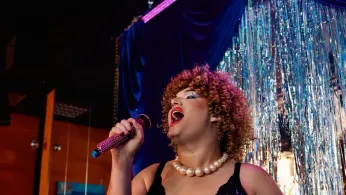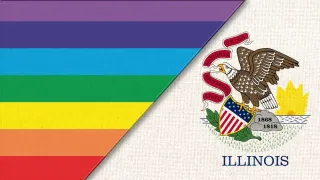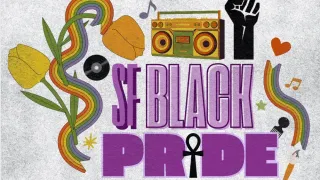
4 hours ago
Federal Appeals Court Blocks West Texas A&M Drag Show Ban, Citing First Amendment Protections
READ TIME: 3 MIN.
A federal appeals court on Monday issued a landmark ruling that blocks West Texas A&M University from enforcing a campus drag show ban, affirming that such performances are likely protected forms of free expression under the First Amendment. The 2-1 decision from the Fifth U.S. Circuit Court of Appeals reverses a lower court’s ruling that had previously allowed the university to cancel a student-organized drag show in 2023, marking a pivotal moment for LGBTQ+ rights and campus free speech nationwide .
The dispute began in March 2023, when Spectrum WT, an LGBTQ+-focused student organization, requested to host a charity drag show in Legacy Hall, a central campus venue. The event aimed to raise funds for The Trevor Project, a leading LGBTQ+ suicide prevention organization. University President Walter Wendler intervened to halt the event, arguing in a campus-wide message that drag shows were demeaning to women and inappropriate for the university setting. Wendler compared drag performances to blackface and asserted that they perpetuated harmful stereotypes, claiming, “Any event which diminishes an individual or group through such representation is wrong” .
Spectrum WT, supported by the Foundation for Individual Rights and Expression (FIRE), filed a lawsuit arguing that the university’s actions constituted viewpoint discrimination and violated students’ rights to free speech and expression . The lower federal court initially sided with the university, but the student group appealed, leading to Monday’s reversal by the Fifth Circuit.
Writing for the majority, Judge Leslie H. Southwick emphasized that the context of the event made its pro-LGBTQ+ message clear, noting that the drag show was organized by LGBTQ+ student groups and specifically intended to support LGBTQ+ suicide prevention efforts. “The viewers of the drag show would have been ticketed audience members attending a performance sponsored by LGBT+ student organizations and designed to raise funds for LGBT+ suicide-prevention charity,” Southwick wrote. “Against this backdrop, the message sent by parading on a theater stage in attire of the opposite sex would have been unmistakable” .
The court found that Legacy Hall functions as a designated public forum, having hosted a wide array of events including religious services, political forums, and community gatherings. By selectively banning drag shows, the university was regulating the content and viewpoint of student speech—a form of censorship that the U.S. Constitution allows only in the rarest and most narrowly defined circumstances .
Citing established precedent, the majority opinion stated, “The loss of First Amendment freedoms, for even minimal periods of time, unquestionably constitutes irreparable injury.” The court ordered that the university cannot enforce the drag show ban while the lawsuit proceeds in the lower court, ensuring that Spectrum WT and other student organizations can organize drag performances on campus in the interim .
The ruling was swiftly welcomed by LGBTQ+ advocates and civil liberties groups, who argued that drag performance is a vital form of queer cultural expression and a means of fostering community solidarity on college campuses. “This is a victory not just for Spectrum WT, but for any public university students at risk of being silenced by campus censors,” said J.T. Morris, an attorney for FIRE, in a statement following the decision .
Organizations such as The Trevor Project underscored the importance of visible, affirming events for LGBTQ+ youth, especially in states where such communities face increased scrutiny and legislative challenges. The court’s decision also comes amid a wave of proposed and enacted state laws seeking to restrict drag performances in public spaces, raising the stakes for similar legal battles nationwide .
Some legal experts noted that the Fifth Circuit’s ruling could set a significant precedent for future cases concerning free speech and LGBTQ+ expression at public universities. By affirming that drag shows are a protected form of expressive conduct, the court has reinforced the importance of safeguarding minority viewpoints and creative expression in public forums.
While the injunction remains in place, the underlying lawsuit will proceed in district court, where the broader questions of university authority and student rights will be further examined. For now, Spectrum WT and other student organizations can once again plan and carry out drag performances, with the backing of constitutional protections affirmed by the court .
As legal and cultural debates over drag, gender expression, and LGBTQ+ rights continue to unfold across the country, Monday’s decision stands as a powerful affirmation of the First Amendment and the right of LGBTQ+ students to celebrate and express their identities on campus.






